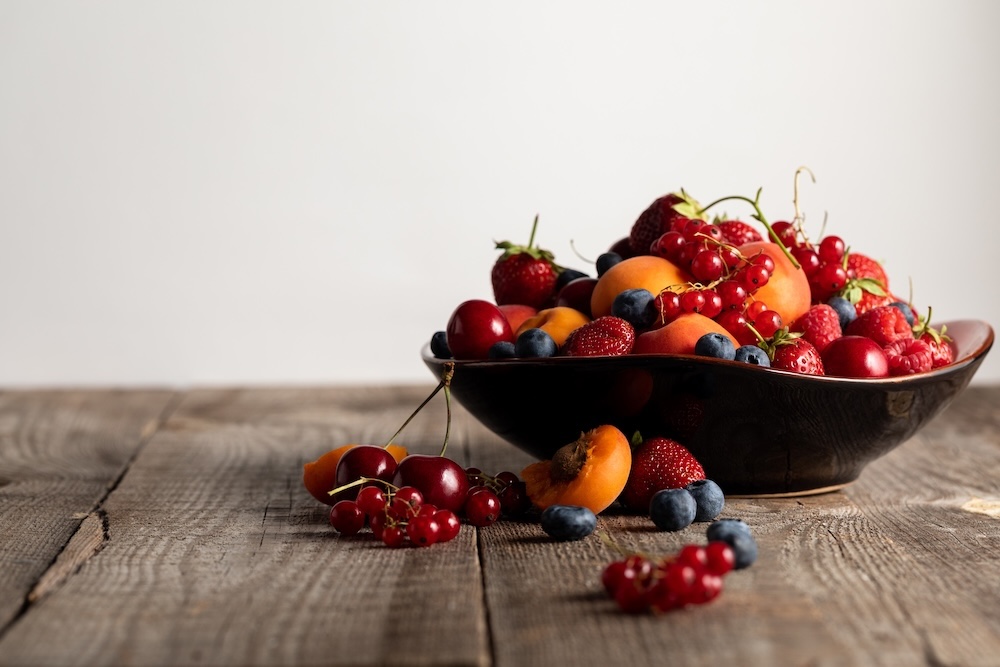Ever notice how some people seem to have a naturally pleasant scent—without perfume or deodorant? Or maybe you’ve eaten something and later caught a whiff of it coming through your pores? That’s not your imagination. What you eat directly influences how you smell.
Body odor isn’t just about hygiene—it’s about internal chemistry. Sweat itself is nearly odorless. But when the compounds in your food are metabolized, they interact with bacteria on your skin—and that’s where scent begins.
In this guide, we’ll explore how certain foods affect your body odor (for better or worse), and how a nutrient-rich, plant-forward diet can help you smell fresh, clean, and naturally you.
The Science Behind Body Odor
Body odor forms when:
- You sweat—mostly from apocrine glands in the armpits, groin, and scalp
- Skin bacteria break down sweat—producing smelly byproducts
- Diet, hormones, and microbiome influence the types of compounds in your sweat
This means your scent is partly determined by genetics—but also by lifestyle, stress, and especially what you eat.
Foods That Can Worsen Body Odor
Some foods produce sulfur-containing compounds or other metabolites that can lead to strong, sometimes unpleasant odors.
1. Red Meat
- Harder to digest
- May produce more waste byproducts in the gut
- Linked to stronger, more pungent body odor in some studies
2. Garlic and Onions
- Contain allicin, which breaks down into sulfurous compounds
- These compounds exit through breath, sweat, and skin
Tip: Cooking or fermenting can reduce their odor impact without eliminating benefits.
3. Cruciferous Vegetables (Broccoli, Cabbage, Kale)
- Healthy and fiber-rich—but also high in sulfur
- May temporarily lead to “funkier” sweat for some people
- Gut microbiome plays a role in how strongly this affects scent
4. Alcohol
- Causes vasodilation (more sweating)
- Breaks down into acetic acid and other compounds that can affect breath and body odor
5. Processed Foods and Refined Sugar
- Feed odor-causing bacteria
- Disrupt your skin and gut microbiome
- Can increase inflammation, making sweat more acidic or “sour”
Foods That Improve Body Odor Naturally
Certain foods help balance pH, reduce inflammation, and support healthy gut flora—all of which influence how you smell.
1. Fresh Fruits
- Citrus (lemons, oranges, grapefruit) can brighten your scent
- Apples, berries, and melons are hydrating and promote pleasant-smelling sweat
- Their high water content supports detoxification
2. Leafy Greens and Parsley
- Rich in chlorophyll, a natural deodorizer
- Help neutralize internal odors
- Parsley and cilantro also contain antimicrobial compounds
3. Fermented Foods
- Yogurt, kefir, sauerkraut, kimchi, miso
- Feed beneficial gut bacteria
- May reduce odor-causing compounds by improving digestion
4. Whole Grains and Fiber-Rich Foods
- Help cleanse the digestive tract
- Promote regular elimination of odor-causing waste
- Support balanced blood sugar, which affects hormonal sweat
5. Healthy Fats
- Omega-3s (flaxseed, chia, walnuts, fatty fish) reduce inflammation
- Olive oil and avocado promote supple skin and better detox pathways
6. Herbal Teas
- Mint, green tea, and sage tea contain polyphenols and antioxidants
- Help calm sweat glands and support liver function
Hydration: The Natural Deodorizer
Never underestimate the power of water. Proper hydration:
- Flushes odor-causing compounds from your system
- Keeps your skin cool, reducing sweat production
- Helps your kidneys and liver function more efficiently
Aim for at least 8–10 cups daily—more if you’re sweating heavily.
Bonus: Foods That Influence Scent in a Good Way
These foods may subtly enhance your body’s natural aroma:
- Cinnamon – warming and antimicrobial
- Vanilla – often metabolized into sweet-smelling byproducts
- Fennel and cardamom – may freshen breath and skin scent
- Lemon zest and peel – citrus oils may exude through sweat
How Long Does It Take for Diet to Change Body Odor?
You might notice subtle shifts within a few days—especially if reducing strong-scent foods. Full benefits often appear after 2–3 weeks of consistent, balanced eating, depending on your gut health and lifestyle.
FAQs About Food and Body Odor
Will I always smell bad if I eat garlic or meat?
Not necessarily—but if those foods are staples and you’re not detoxing efficiently, they can contribute to stronger body odor.
Can going vegan or plant-based improve my scent?
Many people report smelling “cleaner” or “sweeter” after reducing animal products. This may be due to fewer sulfur compounds and better gut balance.
Do probiotics help with odor?
Yes—probiotics support digestion and reduce the compounds that cause body odor.
What about coffee or caffeine?
Caffeine stimulates sweat glands. For some, this leads to stronger body odor—especially with sugary additives or stress.
Can I eat certain herbs to reduce odor?
Yes—chlorophyll-rich herbs like parsley and mint are natural deodorizers.
Final Thoughts: Scent Starts From Within
Body odor isn’t just about soap or deodorant—it’s a reflection of your internal landscape. By choosing foods that support digestion, hydration, and microbial balance, you can create a scent that’s fresh, natural, and uniquely yours.
No perfumes required. Just real food, mindful habits, and a little curiosity about what your body is saying.








